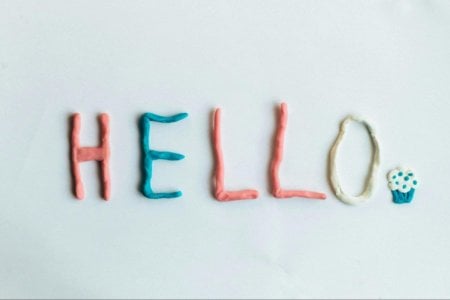American Woman Exposes the Embarrassing Mistake You're Probably Making with Aussie Slang!
By
Maan
- Replies 9
Navigating the linguistic quirks of a new country can be a minefield of potential faux pas, and one American woman’s recent revelation about her 'stupid' Aussie slang mistake is a testament to that. It’s a humorous reminder that even after years of living in a different culture, there’s always something new to learn—or in this case, to hear correctly.
Tara, a Texan who has called Australia home for the past four years, shared her amusing linguistic blunder on social media.
The Warmth of Aussie Slang
The incident highlights the charming complexities of Australian slang, which often involves shortening words and adding an affectionate twist. It’s a linguistic quirk that can lead to confusion for newcomers, but also a sense of warmth once understood. Tara’s story is a delightful example of the cultural exchange that happens when someone immerses themselves in a new environment.
In the video, she confessed to misinterpreting the term 'darl'—a common Australian abbreviation for 'darling'—as 'doll'. This term of endearment, which she found ‘so cute,’ had been a source of endearment from Australian women, or so she thought.
Social Media Chimes In
So, when she decided to Google Australian terms of endearment, and she couldn't find the word "darl' she realised her mistake, leading to what she described as a ‘lightbulb moment.’
Social media users were quick to chime in on Tara’s revelation, with comments ranging from explanations about the Australian tendency to drop the 'r' sound, to anecdotes from other expats who had similar experiences.
Some pointed out that in certain Australian accents, 'darl' can sound very much like 'doll,' and vice versa. Others shared their own humorous misunderstandings, such as an American searching for a clock shop when told about 'Crazy Clark's,' a discount store chain.
More Expats Share Their Experiences
But Tara’s tale is far from unique. Another expat, UK woman Georgia Davies, who has lived in Melbourne for five years, shared her own linguistic learning curve on social media. She explained that the common British greeting ‘you alright?’ can come across as confrontational in Australia, where it might be interpreted as questioning someone’s well-being in a more literal sense.
Language as a Reflection of Culture
These anecdotes serve as a reminder that language is more than just words; it’s a reflection of culture, context, and history. For us Australians, the playful manipulation of language is a hallmark of our nation’s character—where brevity meets endearment and where a simple greeting can be packed with nuance.

As we continue to connect with people from all walks of life and corners of the globe, let’s celebrate the rich tapestry of language and the sometimes-hilarious journey of getting to grips with it. After all, it’s these little moments of confusion and clarity that often lead to the most memorable stories and the warmest of connections. So, whether you’re a 'darl' or a 'doll,' remember that every slip-up is an opportunity for a good laugh and a deeper understanding of the world around us.
For our readers at the Seniors Discount Club, who’ve probably had a few ‘what did I just say?’ moments (whether in your own backyard or overseas), this is a friendly nudge to laugh at those linguistic slip-ups.
Have you ever found yourself in a similar situation? What words or phrases have you come across that took you by surprise? Share your own hilarious slang mix-ups—we’re all in this wordy world together!
Tara, a Texan who has called Australia home for the past four years, shared her amusing linguistic blunder on social media.
The Warmth of Aussie Slang
The incident highlights the charming complexities of Australian slang, which often involves shortening words and adding an affectionate twist. It’s a linguistic quirk that can lead to confusion for newcomers, but also a sense of warmth once understood. Tara’s story is a delightful example of the cultural exchange that happens when someone immerses themselves in a new environment.
In the video, she confessed to misinterpreting the term 'darl'—a common Australian abbreviation for 'darling'—as 'doll'. This term of endearment, which she found ‘so cute,’ had been a source of endearment from Australian women, or so she thought.
Social Media Chimes In
So, when she decided to Google Australian terms of endearment, and she couldn't find the word "darl' she realised her mistake, leading to what she described as a ‘lightbulb moment.’
Social media users were quick to chime in on Tara’s revelation, with comments ranging from explanations about the Australian tendency to drop the 'r' sound, to anecdotes from other expats who had similar experiences.
Some pointed out that in certain Australian accents, 'darl' can sound very much like 'doll,' and vice versa. Others shared their own humorous misunderstandings, such as an American searching for a clock shop when told about 'Crazy Clark's,' a discount store chain.
More Expats Share Their Experiences
But Tara’s tale is far from unique. Another expat, UK woman Georgia Davies, who has lived in Melbourne for five years, shared her own linguistic learning curve on social media. She explained that the common British greeting ‘you alright?’ can come across as confrontational in Australia, where it might be interpreted as questioning someone’s well-being in a more literal sense.
Language as a Reflection of Culture
These anecdotes serve as a reminder that language is more than just words; it’s a reflection of culture, context, and history. For us Australians, the playful manipulation of language is a hallmark of our nation’s character—where brevity meets endearment and where a simple greeting can be packed with nuance.
Key Takeaways
- Tara, a Texan living in Australia, misinterpreted the common Aussie term ‘dar’ (short for darling) as ‘doll,’ leading to a humorous linguistic mix-up that she shared on social media.
- The incident highlights the complexities of Australian slang, where words are often shortened with affectionate twists, causing confusion for newcomers but also creating warmth once understood.
- Other expats joined in with similar experiences, discussing how regional accents and slang variations, like the pronunciation of ‘darl,’ can lead to misunderstandings.
- The article encourages embracing language mistakes with humour and understanding, as these moments contribute to cultural exchange and personal growth.
As we continue to connect with people from all walks of life and corners of the globe, let’s celebrate the rich tapestry of language and the sometimes-hilarious journey of getting to grips with it. After all, it’s these little moments of confusion and clarity that often lead to the most memorable stories and the warmest of connections. So, whether you’re a 'darl' or a 'doll,' remember that every slip-up is an opportunity for a good laugh and a deeper understanding of the world around us.
For our readers at the Seniors Discount Club, who’ve probably had a few ‘what did I just say?’ moments (whether in your own backyard or overseas), this is a friendly nudge to laugh at those linguistic slip-ups.
Have you ever found yourself in a similar situation? What words or phrases have you come across that took you by surprise? Share your own hilarious slang mix-ups—we’re all in this wordy world together!









